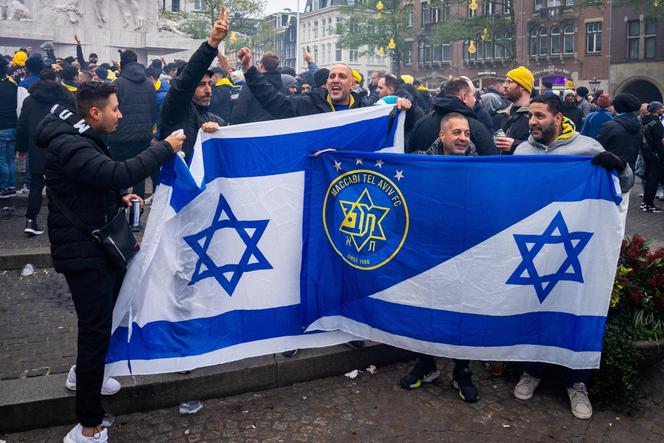
Nothing at the end of Ajax Amsterdam’s 5-0 Europa League victory over Maccabi Tel Aviv could have predicted such a violent outburst. A few hours after the final whistle, several supporters of the Israeli club were attacked in the streets of the Dutch capital on the night of Thursday, November 7 to Friday, November 8. Law enforcement officers made 62 arrests and several people were injured.
The incident sparked outrage across Europe. Ajax Amsterdam said it was “horrified to learn what happened,” after a “match with a good atmosphere,” and “strongly condemn[ed] this violence.” A similar statement came from the Union of European Football Associations (UEFA), organizers of the Europa League.
“We trust that the relevant authorities will identify and charge as many of those responsible for such actions as possible,” the body wrote in a statement. “UEFA will examine all official reports, gather available evidence, assess them and evaluate any further appropriate course of action in accordance with its relevant regulatory framework.”
UEFA is well aware of the explosive nature of the international context. Immediately after the October 7 attacks on Israel and its response in the Gaza Strip, it suspended international matches on Israeli territory for two weeks. The measure was quickly extended and is still in force. Until now, the governing body had managed to avoid a worst-case scenario.
Players insulted in Florence
For the 2023-2024 season, two Israeli clubs were part of the European Cup: Maccabi Haifa and Maccabi Tel Aviv, who had to play their “home” matches in Serbia, Hungary or Cyprus. Everything went without a hitch.
Away from home, however, Maccabi Haifa experienced a few minor disruptions. On February 21, the club played its match against K.A.A. Gent, in Belgium, in a closed-door stadium. The mayor, Mathias De Clercq, deemed it too risky to hold the match as a public event.
The following month, its players played against Fiorentina in front of a handful of spectators: 6,738, compared to an average of 17,463. A large number of Italian fans simply decided to boycott the match, protesting against the complexity of the security measures taken by the Italian authorities. “UEFA, with all the moral principles it prides itself on defending, has nothing to say about the ongoing massacre in Palestine?,” said members of the Curva Fiesole, a group of supporters of the Florence club, in a statement. After the match, the local crowd insulted several Maccabi Haifa players.
You have 43.63% of this article left to read. The rest is for subscribers only.






